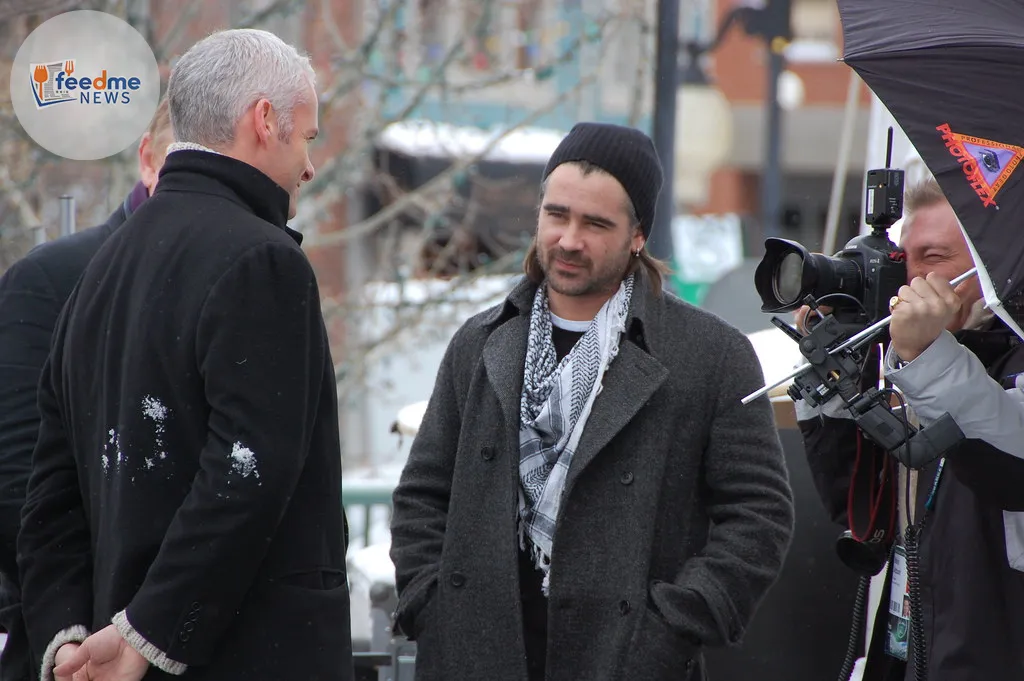Colin Farrell has revealed that he turned up drunk before shooting a scene on Steven Spielberg’s sci?fi thriller Minority Report and needed 46 takes to get through it, calling it “one of the worst days I’ve ever had on a film set.” Reflecting on the episode more than two decades later, Farrell said his co-star Tom Cruise “wasn’t very happy” as the crew tried to salvage the day. The candid account sheds light on the pressures of a high-profile shoot and the high standards expected on a major studio film. Farrell’s admission also adds to a long-running public conversation about discipline, accountability and wellbeing on set, especially when a star’s actions affect a large crew and a costly schedule.
Context and Timing
Farrell shared the story in an interview published by Deadline on 30 October 2025. He described an incident that occurred during the production of Minority Report in the early 2000s, when he played government investigator Danny Witwer opposite Cruise. The film, based on a Philip K. Dick story, follows a future police unit that tries to prevent crimes before they happen.

‘One of the worst days’ on a Spielberg set
Farrell said he went out drinking the night before a key shoot and arrived at work in no state to deliver. He recalled struggling through take after take, describing the experience as “one of the worst days I’ve ever had on a film set.” He added that the scene needed 46 takes before he finally got it right. That number underlines how off?pace the day became for a production known for precision and speed.
The actor framed the memory as a frank confession rather than a boast. By placing the fault squarely on his choices, he drew a clear line between his early?career behaviour and the discipline he expects now. His account points to a moment where talent, responsibility and the reality of a large crew’s time collided. In practical terms, it meant a delayed schedule, a frustrated set and a colleague who expected better.
Cruise’s reaction and on?set standards
Farrell said Cruise “wasn’t very happy” as the day dragged. Cruise is widely regarded as a meticulous professional who prepares intensively and drives demanding shoots. On a film as complex as Minority Report, any delay can ripple through lighting setups, camera moves and stunts. When a co-star falters, the lead actor’s work and the director’s plan also stall.
The episode highlights a central truth of film-making: everyone depends on everyone else. An actor’s readiness shapes the efficiency of the crew and the momentum of the day. A colleague’s visible frustration can also serve as an immediate accountability check. Farrell’s account suggests Cruise made that reaction clear in the moment, underlining the culture of standards that dominates big-budget productions.
A candid reflection on alcohol and early fame
Farrell has spoken in the past about the role alcohol played in his early life and career, and about seeking help and establishing sobriety later on. His latest comments fit that wider story of acknowledgement and change. By openly revisiting a low point, he signals how his attitude to craft and set behaviour has shifted.
Such candour matters because it speaks to how the industry now frames wellbeing and performance. Many performers and film-makers have chosen to discuss substance use with more openness, and to support colleagues who need help. Farrell’s story does not glamorise a rough day; it does the opposite. It shows the cost of showing up unprepared and the direct effect on partners and crew.
Why 46 takes can sink a day’s schedule
On a large set, every take carries a cost. When a scene requires dozens of attempts, the crew must reset marks, adjust light and sound, and keep continuity tight. The director must decide whether to push ahead or cut losses and return later. Both choices burn time. Long overruns place extra strain on camera, lighting and sound teams, and they limit time for later scenes on the call sheet.
A surge in takes also adds creative risk. Actors can lose freshness as repetition mounts, and the search for a usable performance can become narrower. Directors occasionally embrace many takes for stylistic reasons, but a day that runs long because a key performer is not ready tends to erode trust. Farrell’s recollection captures that dynamic and explains why Cruise’s reaction mattered.
Revisiting Minority Report and Farrell’s role
Minority Report, directed by Spielberg and starring Cruise, stands as one of the era’s notable sci?fi thrillers. It adapts a Philip K. Dick story about a police unit that intercepts crimes before they occur. Farrell played Danny Witwer, a Justice Department official who scrutinises the Precrime programme, setting up a tense rivalry with Cruise’s character. The part marked a major Hollywood turn for the Irish actor early in his international career.
That backdrop heightens the significance of his story. He was an emerging name stepping into a heavyweight production led by one of the world’s biggest stars and one of its most influential directors. The demands of that environment can magnify both triumphs and mistakes. His memory of the 46?take day includes both: the fragility of an early misstep and the hard lesson that followed.
Lessons for sets and audiences alike
Farrell’s admission speaks to two audiences at once. For industry professionals, it reads as a case study in the value of preparation, the cost of delays and the importance of owning errors. For audiences, it humanises a polished finished product by showing the messy process behind it. The clean, futuristic world on screen came from long days when hundreds of people had to deliver in sync.
The story also aligns with a broader shift towards transparency. Stars now speak more freely about health, workload and the realities of big shoots. When those stories involve lapses, they often come framed with lessons learned. Farrell’s framing does that work. He gives a clear account, accepts responsibility and leaves little room for nostalgia about a time when he says he fell short.
Wrap-Up
Colin Farrell’s recollection of a 46?take ordeal on Minority Report offers a sharp reminder of the standards that govern high?stakes film-making. By admitting he turned up drunk and describing the fallout, he shows how a single decision can derail a day and strain relationships. His note that Tom Cruise “wasn’t very happy” speaks to the expectations on a set led by a star and a director known for control and pace. The account adds to a pattern of openness that now shapes how the industry talks about behaviour and wellbeing at work. It also hints at how Farrell expects more from himself today. As film sets grow more complex and time?sensitive, such reflections carry weight, both as cautionary tales and as markers of change in a business that relies on trust, craft and readiness.






